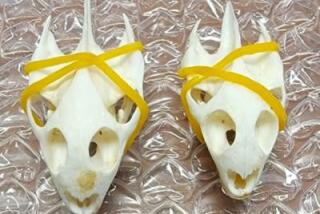Soviets Protest U.S. Removal of A-Test Items
- Share via
WASHINGTON — Members of a U.S. team stationed at the Soviet Union’s principal nuclear test site were recently caught by Soviet authorities trying to ship prohibited, militarily sensitive Soviet materials to the United States, prompting a formal diplomatic protest by Moscow, U.S. officials said Thursday.
The attempted shipment by the Americans on July 17 involved materials such as tools and wire associated with Soviet nuclear test preparations as well as soil and rock samples of potential use in assessing yields of Soviet nuclear blasts, the officials said.
Asked if the United States had deliberately set out to collect the prohibited materials, effectively engaging in spying, Robert Barker, a senior U.S. official, said, “Absolutely not.”
The incident occurs as both countries for the first time in the atomic age have begun to allow each other to observe and monitor their adversary’s nuclear blasts.
Special Test Next Month
Export of the materials was not permitted by a U.S.-Soviet accord governing the team’s visit before a special nuclear experiment next month at the site, near Semipalatinsk in south-central Soviet Asia.
“There’s no question but that we stepped over the bounds of the agreement,” a senior Administration official said, adding that the incident presumably stemmed from an innocent mistake.
Discovery of the attempted shipment, in a crate of personal belongings of a U.S. official and two employees of private firms under contract to the U.S. government, prompted Soviet inspectors to inform their Foreign Ministry. On July 25, in a private protest to U.S. diplomats, the ministry demanded expulsion of the three team members and a detailed explanation.
By then, however, the U.S. official and one of the contractor employees had left the country, according to informed sources. The United States denied that the second contractor employee was responsible for the attempt, and the Soviets allowed him to remain.
More to Read
Sign up for Essential California
The most important California stories and recommendations in your inbox every morning.
You may occasionally receive promotional content from the Los Angeles Times.










